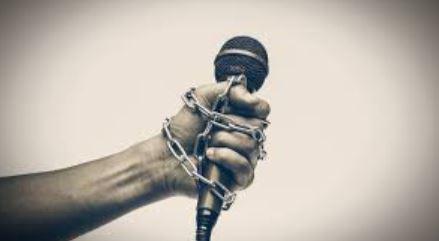
The Pressing Matter of the Freedom of Press: authorities becoming increasingly hostile towards reporters
The year of our lord 2020 has been a tumultuous one for Hong Kong. From the civil unrest late last year to the ongoing Coronavirus situation, the city has been busy braving one hardship after another. A salient point to note, however, is that our ability to converse freely on these topics is under attack.
When the government accused the public broadcaster, Radio Television Hong Kong (RTHK), of breaching the One-China principle in relation to an interview with a senior WHO official on the status of Taiwan’s membership, it reminded us that the freedom of the press in Hong Kong is and has been precarious for quite some time.
To understand how one of Asia’s freest cities has lost some of its socio-political lustre, a journey outlining its legal and societal developments is necessary.
Firstly, like any good legally protected right, it is natural and desirable for there to be limitations on its exercise. The de-facto constitution of Hong Kong, the Basic Law, provides the basis for various civil freedoms in Article 27 but also notes limitations “prescribed by law” in Article 39.
These limitations can be seen more clearly through the principles enshrined in the Hong Kong Bill of Rights Ordinance, specifically in Article 16. Putting it all together, all residents enjoy the ability to “seek, receive, and impart” information, subject to an impediment on others’ rights to enjoy the same and, perhaps more critically, the “protection of national security or of public order, or of public health or morals”.
Finding the balance between this exercise and protection of rights is the fundamental issue of any independent legal system. Commentators would point out the key word of that sentence is independent, as a recurring issue in Hong Kong’s legal system is the outside pressure from the government and, by extension, Beijing.
This has been an increasingly observable phenomenon in recent years as officials clamp down on free expression in an era of rising social unrest. The protests in the wake of the now withdrawn extradition bill saw numerous cases of harassment and excessive use of force against journalists dominating the headlines in 2019. Lam Yin-Pong, an executive member of the Hong Kong Journalists Association (HKJA), referred to it as the worst year for press freedom to date, adding: “In the past, deviation from press freedom was more inconspicuous but now it is very obvious”.
An important watershed moment, however, was the expulsion of British journalist, Victor Mallet in 2018. In the past, Hong Kong had enjoyed a relatively high degree of press autonomy, with a litany of foreign journalists and international media outlets dotting its reporting landscape. Cue a speech by the leader of a pro-independence party at the Foreign Correspondents’ Club (FCC), hosted by Mallet, and he finds himself with a denied work visa without any official explanation.
In some ways, the relative ease with which this decision stands to date showcases at least a hesitation if not an unequivocal refusal of the courts to uphold the tenets of free expression. It also represents an emboldening of those in power to further test how far they can cross a line before going too far.
The common thread between these disregards for the constitutional freedoms seems to be one that goes against China’s sentiment pertaining to Hong Kong’s independence and the One Country Two Systems mantra (notwithstanding the use of unjustified force). This raises an important legal (and by extension, social) question: Does reporting against these sentiments violate the limitations placed on the freedom of press?
Legally, it would be difficult to show how this reporting conflicts with public order or damages national security. It might work to the degree it provides a platform for anti-nationalist sentiment but charting the differences between anti-nationalist and generally dissident voices becomes a game of walking a legal and political tightrope. RTHK’s charter gives it editorial freedom but even then, the question of Taiwan has no direct relationship to the One Country Two Systems idea, if for no other reason than the fact that it refers to Hong Kong’s place within China.
Outside the legal sphere, various associations have tried to protect journalists’ ability to report freely. The FCC and HKJA act as watchdogs against the declining press freedom. The FCC provides safety training for journalists operating in hostile environments while the HKJA also initiated legal proceedings against the Police chief for alleged misconduct in relation to targeting journalists for covering the protests.
Ultimately, a journalist looking to protect their constitutional freedoms can still challenge these injustices in court. However, the incidence of these injustices is definitely on the rise. Our ability to enjoy these freedoms free from harassment is vanishing, placing the onus on us to be more active in their defence.
0 Comments Add a Comment?